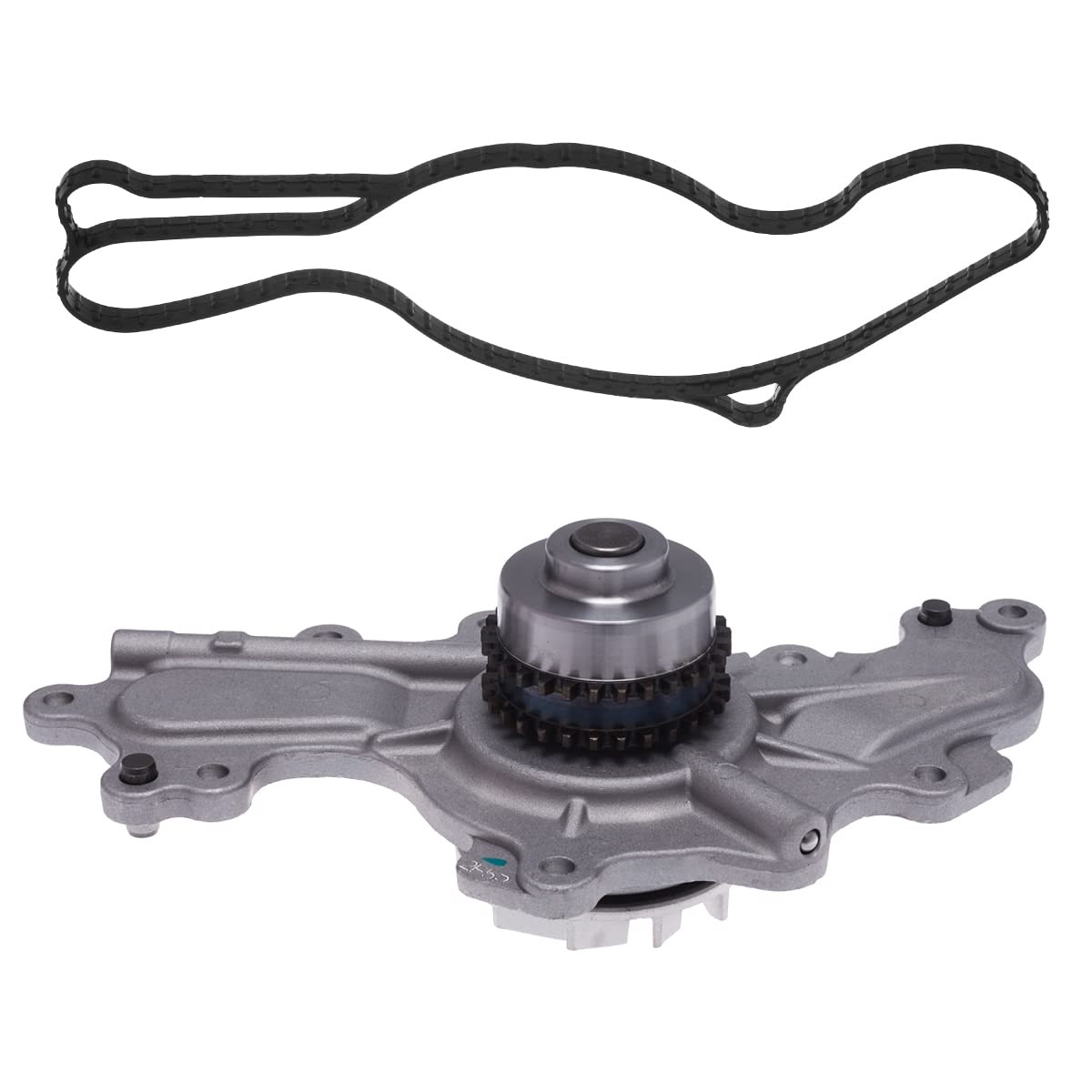A Toyota water pump typically lasts around 60,000 to 90,000 miles. This can vary based on driving conditions and maintenance habits.
Proper maintenance and regular inspections can help extend the lifespan of the water pump. The water pump is a critical component of a vehicle’s cooling system, responsible for circulating coolant to maintain the engine’s temperature. Over time, the pump’s bearings can wear out, leading to leaks or inefficient coolant circulation.
Regular checks for leaks and unusual noises, as well as timely replacement of the water pump, are essential for preventing potential damage to the engine. By staying proactive and adhering to the manufacturer’s recommendations, drivers can ensure the longevity and performance of their Toyota’s water pump.
Factors Affecting Toyota Water Pump Longevity
Toyota water pump longevity is influenced by several key factors. The material and construction of the water pump play a significant role in determining its lifespan. High-quality materials and durable construction contribute to greater longevity. Moreover, maintenance and usage patterns are critical in prolonging the life of the water pump. Regular maintenance, such as coolant flushes and inspections, can identify potential issues before they escalate. Additionally, consistent usage in accordance with manufacturer guidelines can help prevent premature wear and tear. By understanding these factors, Toyota owners can effectively maximize the longevity of their water pumps.
Signs Of Toyota Water Pump Failure
One of the crucial components of a Toyota vehicle is the water pump, responsible for circulating coolant throughout the engine. Overheating is a common indication of a failing water pump, as the engine may exceed normal operating temperatures. Additionally, visible coolant leaks under the vehicle can signal a malfunctioning water pump. Furthermore, unusual noises coming from the pump area can be a sign of internal damage, indicating that it may be reaching the end of its lifespan. Regular inspection and maintenance of your Toyota’s water pump can help avoid potential issues and ensure the longevity of your vehicle’s cooling system.
Replacing A Toyota Water Pump
The lifespan of a Toyota water pump can vary based on several factors, including driving conditions, maintenance, and quality of the pump. However, on average, a well-maintained Toyota water pump can last between 60,000 to 100,000 miles. When it comes to replacing a Toyota water pump, it’s essential to consider the steps and considerations involved. Professional replacement ensures expertise and warranty coverage, but it may lead to higher costs. On the other hand, DIY replacement can be cost-effective, but requires mechanical skills and time commitment. Ultimately, the decision between professional vs. DIY replacement depends on the individual’s preferences and capabilities.
Before proceeding with either option, it’s crucial to accurately assess the condition of the water pump and the level of expertise required for its replacement. Additionally, considering the vehicle’s warranty status and the availability of suitable replacement parts is indispensable for a smooth and successful replacement process. Regular maintenance and timely replacement are key factors in ensuring the longevity and optimal performance of a Toyota water pump.
Extending The Lifespan Of Your Toyota Water Pump
Toyota water pumps have a lifespan of about 60,000 to 90,000 miles. To extend its lifespan, regular maintenance is crucial. One important maintenance tip is to monitor coolant quality and levels. Coolant should be replaced according to the manufacturer’s recommendations, usually every 30,000 to 60,000 miles. Ensure the coolant level is always within the recommended range to prevent overheating and premature wear on the water pump.

Credit: storables.com
Frequently Asked Questions For How Long Does A Toyota Water Pump Last
How Long Does A Toyota Water Pump Typically Last?
The lifespan of a Toyota water pump can vary, but it often lasts between 60,000 and 90,000 miles. Regular maintenance and quality parts can extend its longevity.
What Are The Signs Of A Failing Toyota Water Pump?
Common indicators of a failing Toyota water pump include overheating, coolant leaks, and unusual noises coming from the engine. Addressing these issues promptly can prevent further damage to your vehicle.
How Can I Extend The Lifespan Of My Toyota Water Pump?
Regularly scheduled maintenance, such as changing the coolant and inspecting the water pump, can help prolong its lifespan. Using high-quality coolant and timely repairs can also contribute to its longevity.
Conclusion
The longevity of a Toyota water pump can vary depending on driving habits and maintenance. Regular inspections and timely replacements can prolong its lifespan. By staying proactive and seeking professional help, you can ensure the optimal performance of your Toyota vehicle.
Keep your engine running smoothly with proper care of the water pump.







